info@gerb.com
Protecting Basel Concert Hall from vibration & structure-borne noise
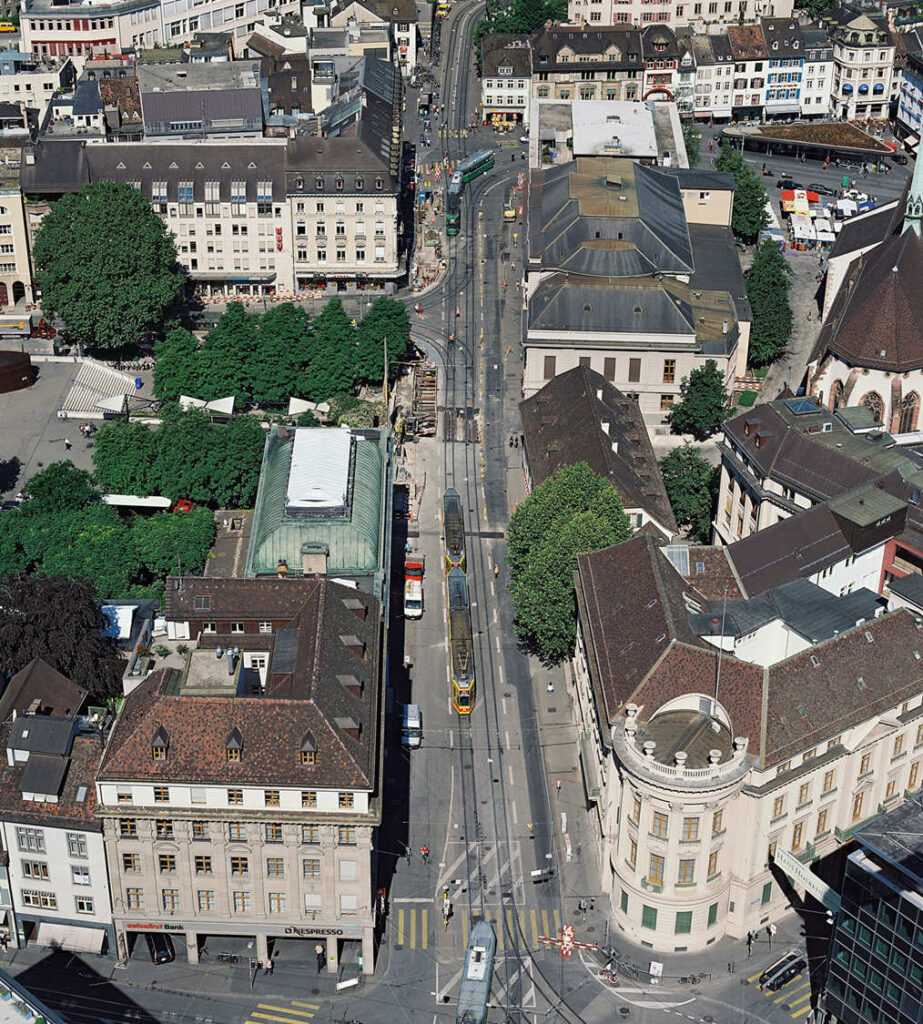
Challenge
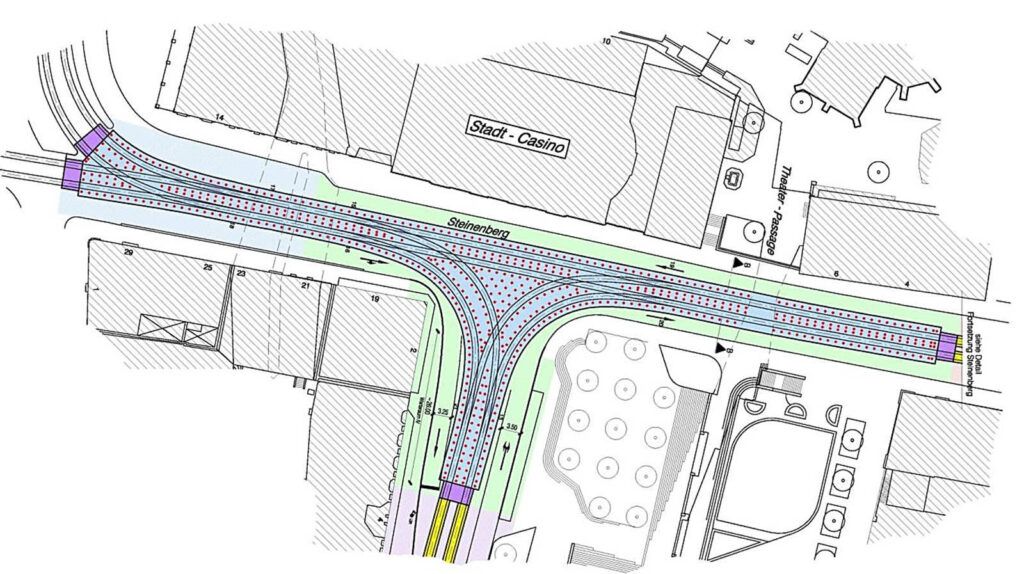
The excellent acoustic properties of the music hall were severely impaired by the noise and vibration of the trams.
Despite decades (37 years) of serious efforts, the problem has not been solved. For this reason, there was increasing criticism:
The audience complained about the disturbed enjoyment of the concert.
There was no suitable venue for the top-class symphony orchestra available, which also demotivated the orchestra members and soloists.
Professional recordings were no longer produced in the music hall.
Renowned artists refused to perform in this hall.
Due to these serious facts, the operator Casino-Gesellschaft and the canton suffered non-material and financial damage.
Solution
Technical Facts:
Building: Stadt Casino Basel
Vibration source: Train Traffic
Base isolation frequency: 5 Hz
GERB elements: GSI spring elements for Floating Slab Track
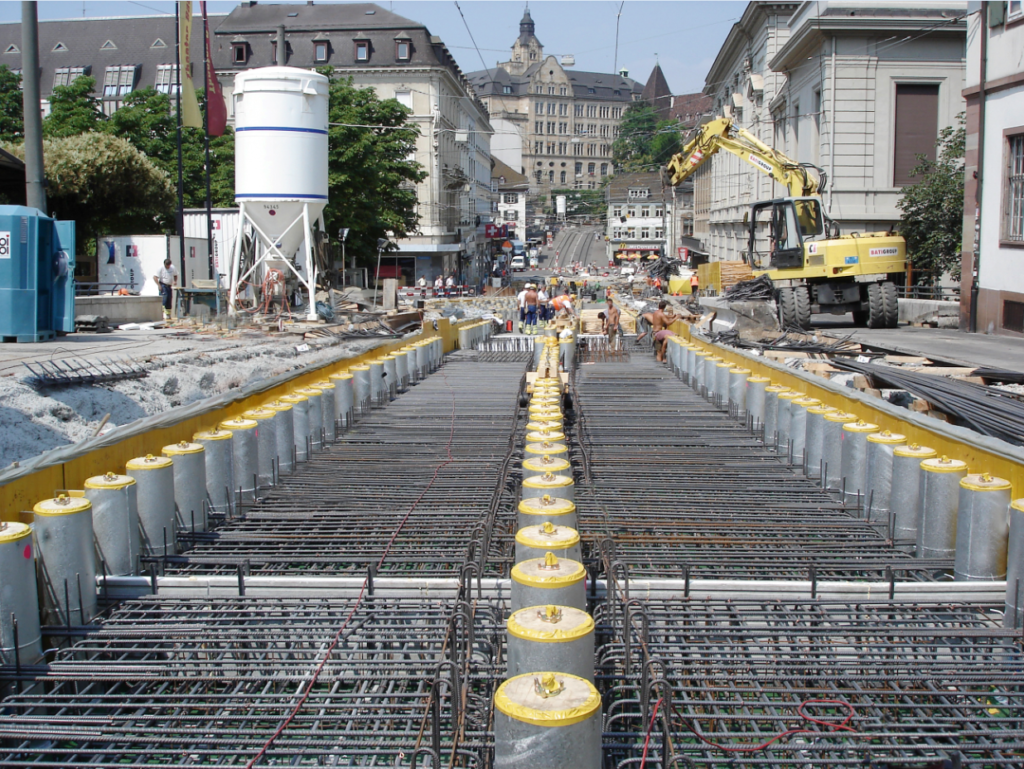
Result
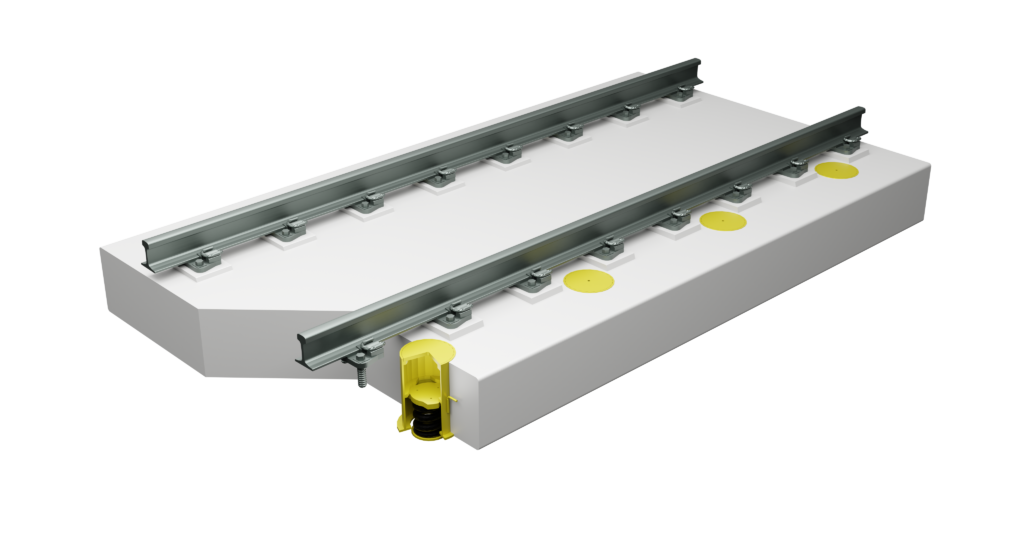
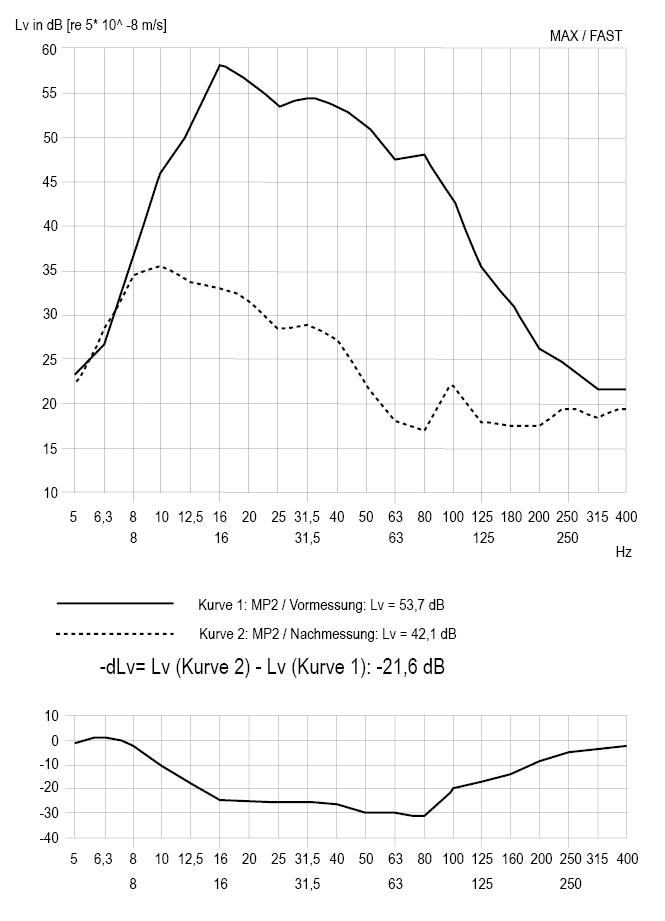
Further Resources
You need further information on this topic?
Please do not hesitate to contact us with your individual question.
One of our project engineers will get back to you shortly.
Protecting Basel Concert Hall from vibration & structure-borne noise
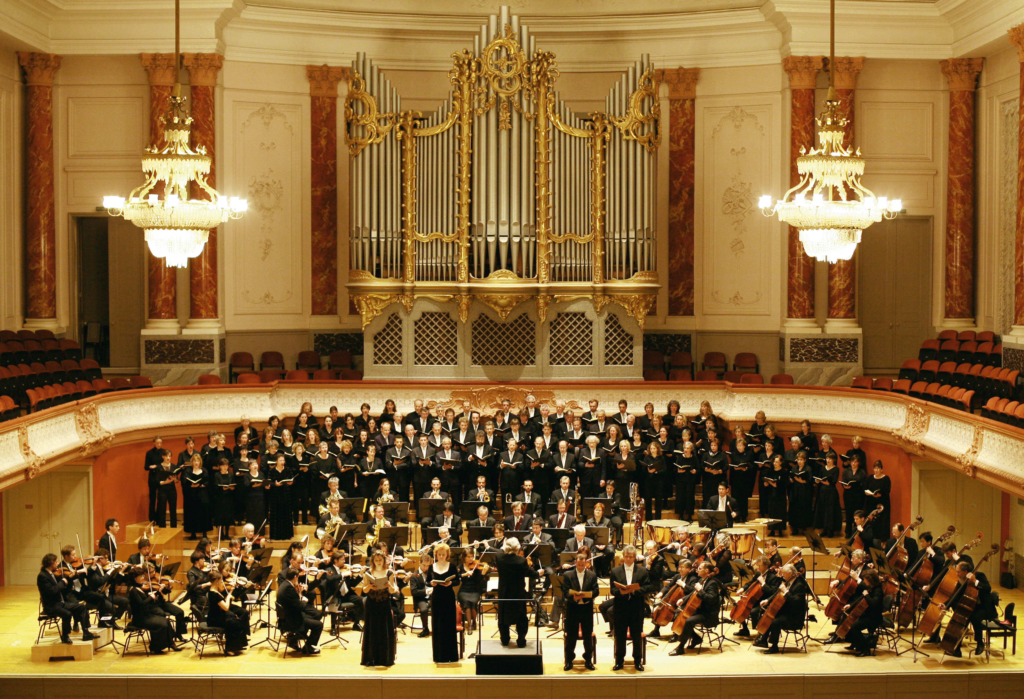
When the music hall was realized in 1876, the walls were built directly on the foundations of the historic city wall and the vault of the Birsig (river). The city wall itself is rigidly connected to the Birsig vault. Over the years, the components have been firmly connected to the tram via pipelines, cable tunnels and a pedestrian underpass, resulting in numerous structure-borne noise bridges. Vibrations from passing trams are transmitted to the music hall and radiated as secondary airborne noise.
The music hall was opened by the Casino-Gesellschaft Basel, founded in 1824, due to the growing number of cultural events. The hall was designed by architect J.J. Stehlin-Burckhardt and is internationally recognized as an outstanding concert hall.
Protecting Basel Concert Hall from vibration & structure-borne noise
When the music hall was realized in 1876, the walls were built directly on the foundations of the historic city wall and the vault of the Birsig (river). The city wall itself is rigidly connected to the Birsig vault. Over the years, the components have been firmly connected to the tram via pipelines, cable tunnels and a pedestrian underpass, resulting in numerous structure-borne noise bridges. Vibrations from passing trams are transmitted to the music hall and radiated as secondary airborne noise.
The music hall was opened by the Casino-Gesellschaft Basel, founded in 1824, due to the growing number of cultural events. The hall was designed by architect J.J. Stehlin-Burckhardt and is internationally recognized as an outstanding concert hall.

Challenge
The excellent acoustic properties of the music hall were severely impaired by the noise and vibration of the trams. Despite decades (37 years) of serious efforts, the problem has not been solved. For this reason, there was increasing criticism:
- The audience complained about the disturbed enjoyment of the concert.
- There was no suitable venue for the top-class symphony orchestra available, which also demotivated the orchestra members and soloists.
- Professional recordings were no longer produced in the music hall.
- Renowned artists refused to perform in this hall.
Due to these serious facts, the operator Casino-Gesellschaft and the canton suffered non-material and financial damage.
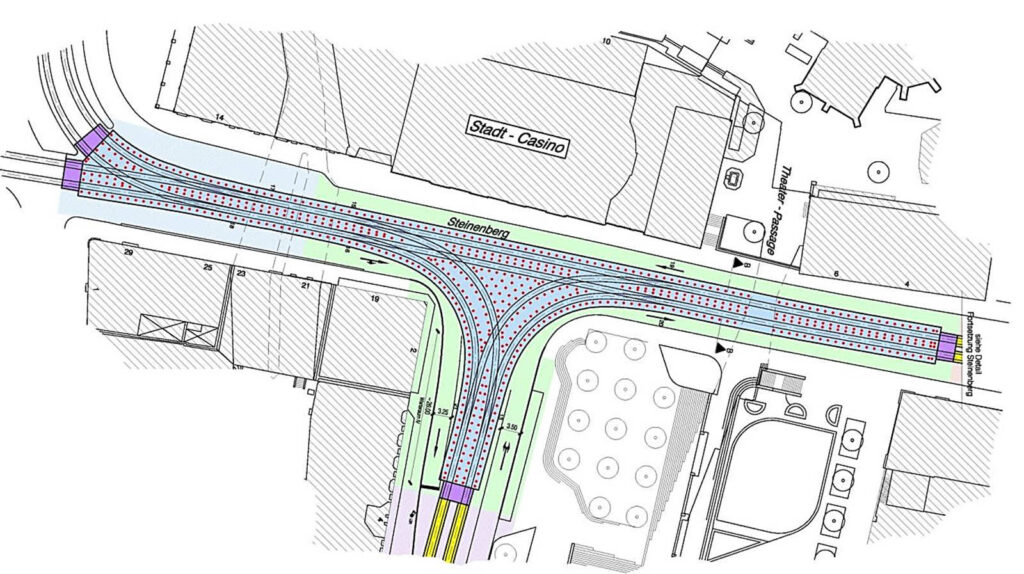
Challenge
The excellent acoustic properties of the music hall were severely impaired by the noise and vibration of the trams. Despite decades (37 years) of serious efforts, the problem has not been solved. For this reason, there was increasing criticism:
- The audience complained about the disturbed enjoyment of the concert.
- There was no suitable venue for the top-class symphony orchestra available, which also demotivated the orchestra members and soloists.
- Professional recordings were no longer produced in the music hall.
- Renowned artists refused to perform in this hall.
Due to these serious facts, the operator Casino-Gesellschaft and the canton suffered non-material and financial damage.

Solution
Technical Facts:
Building: Stadtcasino Basel
Vibration source: Tram Traffic
Base isolation frequency: 5 Hz
GERB elements: GSI spring elements for Floating Slab Track

Result

Solution
Technical Facts:
Building: Stadtcasino Basel
Vibration source: Tram Traffic
Base isolation frequency: 5 Hz
GERB elements: GSI

Share this post
Further Resources
You need further information on this topic?
Please do not hesitate to contact us with your individual question.
One of our project engineers will get back to you shortly.
Further Resources
You need further information on this topic?
Please do not hesitate to contact us with your individual question.
One of our project engineers will get back to you shortly.